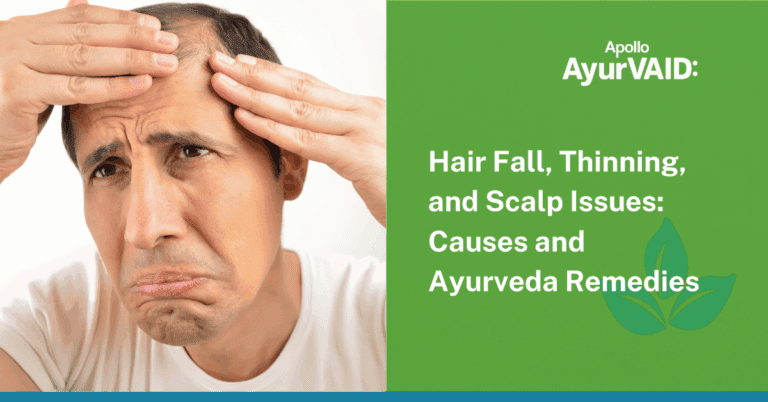Introduction
Some childhood memories never fade. If you grew up in an Indian home, you might remember the comforting smell of turmeric powder swirling in your mother’s curry, or the cup of “haldi doodh” she pressed into your hands any time you had a cough or a scraped knee. The scene always went the same way: golden powder, gentle hands, and a silent lesson that healing could come from the kitchen shelf as much as the doctor’s office. This is the quiet strength of turmeric, also called Haridra in Sanskrit, meaning one that adorns Hari or Lord Vishnu. Long before “superfood” and “immunity booster” became buzzwords, turmeric held its place as a household staple. No festival meal or family gathering was complete without dishes stained gold with its earthy aroma, and turmeric was mixed into warm milk for restless sleep, made into a paste for pimples or minor wounds, and celebrated in weddings, where the haldi ceremony was a ritual of health, purity, and joy.

How Haridra Works According to Ayurveda
Ayurveda reveres Haridra as a multifaceted healer, Vishaghna (cleansing toxins), Kusthaghna (easing skin discomfort), Vayasthapana (age restorer), and Ojo vardhana (vitality and strength promoter). This herb balances all three doshas: its ushna (hot) potency, earthy bitterness, and dry quality balance Vata and Kapha dosha, and its bitter flavor balances Pitta. Turmeric supports healthy Rasa dhatu (plasma) and Rakta dhatu (blood) and nourishes the circulatory system. It supports Agni (healthy metabolism) and therefore preserves optimal digestive strength. Every pinch in a curry, every dab on a cut, is the wisdom of many generations lived and written. Modern research validates many of these real-world outcomes. Curcumin is a natural anti-inflammatory and antioxidant that reduces markers of chronic inflammation, such as CRP and TNF-alpha. It supports your body’s antioxidant enzymes, helps balance the immune system, and encourages faster recovery from tissue injury. The curcuminoids in Haridra regulate inflammation, modulate immune function, and enhance digestive comfort.

AyurVAID Products That Bring Turmeric’s Promise Home

- AyurVAID Nalpamaradi Thailam Cream
AyurVAID Nalpamaradi Thailam Cream is useful for those who struggle with tanning, uneven skin tone, sunburn, or dullness. Unlike greasy oils, this modern adaptation is a light, fast-absorbing cream blending turmeric, nalpamara (four ficus trees), sandalwood, and sesame oil. It helps reduce skin rashes and provides a noticeable reduction in skin inflammation and giving a natural, luminous glow over time.


- AyurVAID Rasnadi Kashayam
Joint stiffness and body aches aren’t uncommon nowadays due to our busy schedules. AyurVAID Rasnadi Kashayam is a decoction with turmeric, ginger, and Sahachara that addresses these complaints at their root. It helps reduce joint tenderness, swelling, and inflammation, especially for elders, athletes, or those recovering from a fever.


AyurVAID Medicines are India’s First & Only TESTED SAFE Ayurveda range. Heavy Metals, aflatoxins, and microbial load are all well within permissible limits, adhering to API standards, ensuring Purity, Safety, and Therapeutic Integrity. Each AyurVAID product is tested for safety in NABL-accredited labs, with batch-specific test reports accessible via the QR code on the pack, ensuring complete transparency and trust.
Safety tip: Taking higher dosages of curcumin than recommended may cause mild cases of diarrhoea, nausea, upset stomach, and dizziness. Usually, turmeric does not produce any kind of adverse effect as long as it is used in small amounts, either in food or applied topically. Turmeric supplements contain curcumin in higher concentrations than the natural form; therefore, these supplements are best not taken during pregnancy. The high concentration of curcumin can stimulate the uterus and induce bleeding, thus putting the pregnancy at risk. One should avoid turmeric, even as a spice in food, in the presence of gallstones or bile duct occlusion, for it can worsen the condition. Individuals who are breastfeeding, suffer from liver disease, gastroesophageal reflux disease, infertility, hormone-related conditions, and arrhythmia or those taking blood thinners, should consult a doctor before trying turmeric supplements.
How to Take Turmeric for Everyday Wellness
You do not need to go through elaborate steps to receive benefits from turmeric. Ayurveda teaches us that healing can happen simply by integrating it into our daily lives, such as:
- In food: Add a pinch of turmeric to soups, curries, lentils, or any vegetable for better digestion and immune support.
- As a drink: Combine half a teaspoon of turmeric and a pinch of black pepper in warm milk before bed to promote restful sleep and respiratory relief.
- As supplements: Turmeric pills, extracts, or classical formulations like Haridrakhandam, under the guidance of your practitioner, produce targeted action against allergic reactions, inflammation, or low immunity.

A Golden Thread, Generation to Generation
From kitchen to clinic, turmeric remains foundational to everyday wellness in India. Turmeric connects generations: grandma’s haldi milk, mom’s healing paste, and the AyurVAID formulations we trust and rely on that have been clinically researched. With products like AyurVAID Haridrakhandam, Nalpamaradi Thailam Cream, and Rasnadi Kashyam, age-old wisdom has been formulated in modern products providing safe, tested, and effective Ayurveda care for every stage of life. Turmeric is more than just a spice; it is a gentle reminder that healing does not always need to be complicated; it may be something little and golden simply waiting for you in your kitchen.







